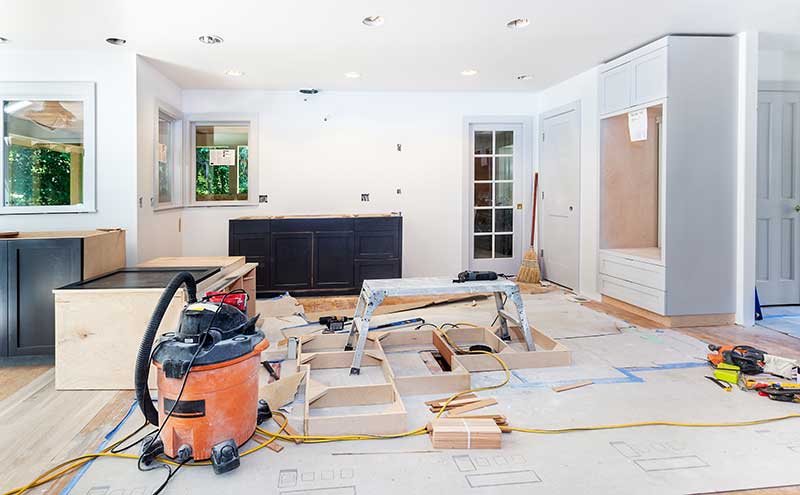Home renovation is a fun project that can make your long-time home feel brand new. You might choose to update your home to match modern design, give you more space or accommodate changing needs. Whatever your reasons, a home renovation project is a big undertaking and often overwhelms even the most prepared homeowners.
In this article, we’ll give you some tips for before and during your renovation project to help you stay on track and reduce stress.
Make a Plan
First and foremost, don’t dive into a major project without a plan. You might decide that you want a new kitchen or to take out a wall and combine two rooms, but if you start swinging a sledgehammer with no blueprints, you’ll end up in trouble quickly.
At this stage, it can often be helpful to meet with a contractor who can help you assess if your dreams are realistic and what would need to happen to make them come true. They can help you create a detailed plan that you can either use when you DIY it or hire them to implement it.
Decide on a Budget
Home renovation can quickly get out of hand if you don’t set a budget for yourself. Some homeowners think they’ll use a pay-as-they-go system, but within six months their funds are tapped out and their project is only half-finished.
Setting a budget can help you track costs and ensure you have enough to get all the way to the end of your job. It also tells you how much you’ll need to borrow if you plan to look at home improvement loans or other financing options.
Create a Timeline
With the foundational elements of your renovation in place, it’s time to establish a timeline. If you’re working with a contractor, they will likely lay out a general timeline for you with expected deliverables throughout the project. If you’re doing it yourself, it’s important to be realistic about how much time you can dedicate to the project and how long each task will take you.
As with all construction projects, home renovation timelines are subject to many variables. It’s important to stay flexible throughout your project and be able to pivot to other tasks if what’s on the schedule gets pushed back.
Plan for Demolition
The first stage in any renovation is demolition. You need to take out the old elements of your home so that you can make space for the new ones. The only trouble is that this often means you won’t have access to that portion of your home during the renovation.
It’s important to plan the demolition at a time that works with your schedule. For example, you wouldn’t want to remodel the guest bedroom if your family is coming to visit in two weeks.
You also need to consider how you’ll function without access to that room. The most problematic remodel is often the kitchen because you won’t have access to your normal refrigerator, stove or countertops. You’ll need a plan for how you’ll cook and save your meals while the project is ongoing.
Remember the Big Picture
As mentioned before, renovations are stressful. The key to managing this stress is to remember the big picture throughout every stage of your remodel. The more you can imagine what your home will look like when everything is finished, the more inspired and patient you’ll feel.
This is also important to ensure that progress is being made in the right direction. When you have a solid understanding of the big picture, you’re more likely to notice if something goes wrong or is done incorrectly. In this instance, you can consult your contractor or blueprints to ensure no mistakes were made.
A home renovation is a fun project but a big undertaking. Use these tips to ensure your project goes smoothly and the finished product is exactly what you were hoping for!




